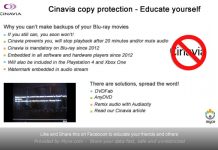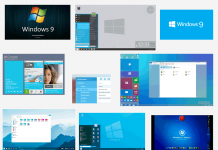Every time we post something about a new copy protection appearing on the market here @ CD Freaks, we get the same reactions over and over again. - It will be hacked/cracked soon ! - I think this is because people don't understand where copy protections are about. In the end, the developer of the protection wants his protection to be unbreakable, but I think most of them already found out this will never be reality. Almost every protection can be hacked, cracked or bypassed. But although it can be cracked the protection can still be successful.
Why using a copy protection ?
The real function of a copy protection nowadays is to make it as hard as possible for the consumers to make a copy of the original. As most consumers don't have a clue about technology this is pretty easy to accomplish. But there are however some people that don't give up so easily. On our site we post a lot about new technologies that appear and that are bypassed someway. I clearly use the way bypass here because that is what we like to do. We don't want to break any laws and we don't want to break into the original code of the CD we want to copy. What we want is called a Perfect Copy. A 1:1 copy, that contains exact the same data as the original. Getting such a copy is almost a sport and is becoming more and more something that can only be done if you have the knowledge and the right equipment.
At the current moment copy protections are a hot issue, newspapers and large technology sites report about them once in a while, because copy protection on audio CDs is something the public is against. While the game industry is already using copy protections for years on their CDs, the audio industry has just recently discovered them. While most of their protections have failed to be as slightly successful as protections in the game industry like the much discussed protection SafeDisc (that gets improved from time to time), there is a lot of discussion about it. People have the feeling to loose control about the (already expensive) CDs they buy and are concerned if the quality of the audio isn't decreased by the protections. Besides that the protections also limit legal uses, such as backups for the car stereo etc.
The record industry is at this current moment still getting away with it and that is why I and many other people consider the record industry to be a greedy monopolistic industry that has not the main purpose to serve the public but has the main purpose to suck as much money out of the public as possible. And instead of lowering prices of the CDs they have decided to put their efforts in developing copy protections that should make it difficult for consumers to make copies of their already expensive CDs and distribute them on the internet.
Understanding the pirates:
Once this was just the habit of a few thousand people; buy a CD, copy or rip the CD and distribute it on the internet, and now millions of people do this everyday. You almost can't find a computer that has no file sharing and mp3 playing software installed. The record industry has never asked themselves why people are doing this, nope sir, the only questions they have asked themselves is how on earth to stop people from doing this. But it's already too late.
While their current copy protection schemes fail, the MP3 files float around the internet, and there is not much they can do to stop it. They have made the big mistake of not listening to the consumers, but trying to take back control over them.
While people are easily fooled, this time it seems the record industry can fool the public no longer. But is there a solution ? Well I think so. To understand this solution we should take a look at the current consumers:
So if you look at these categories, there are only a small amount of people that can be considered really damaging for the music industry. The first two do no damage, and the other two categories, do a small damage and should be easily converted to legal buyers and in this category we will probably find most people.
The solution ?
The most damaging are the last two and I guess these categories are hard to convert to legal users. There for I would suggest the industry to take the following actions:
This would stop the so called dealers, the people that want to make a quick buck with it, will be scared off because it's no quick buck anymore, and the people that trade a CD once in while will still be able to copy them, but it will just take them a lot of time, and I guess most of them just wouldn't mind.
Of course I know, a world without copy protections would be the best one, but it's human nature to try to get as many things for as less money as possible, and while free music is available on the net it's still way to easy to just download a song (there are still a lot of legal buyers tough).
I think with this solution there will be a break even point. The copier has to make his choice, spend of a lot of time to copy the CD, or just buy it. If the price of the CD is low enough, he will pick to buy the CD as time is still money and it will save him from a lot of hassle. And after all, although I still consider the record industry as a greedy, monopolistic one, we have to be realistic, also they and the artist should be allowed to make money, but within reason.
As for the artists, some have supported Napster trough the times, but we don't see their support for any other file sharing network anymore, I'm not sure if their 'support' was more public relations then their real conviction. I would love to see the first artist leaving a record company because the company is selling the artists albums too expensive, that would be a really good sign they care about their fans !
But back to the protections, the protections used on the CD's now are far from effective and can easily be bypassed. Besides that they have a bad effect on the general public and are only increasing production costs. As long as the record industry goes their own way and not giving the public a good alternative (for example download music for REASONABLE prices, lower the prices on CD's) they will loose the battle and the file sharing and CD copying will not stop.










